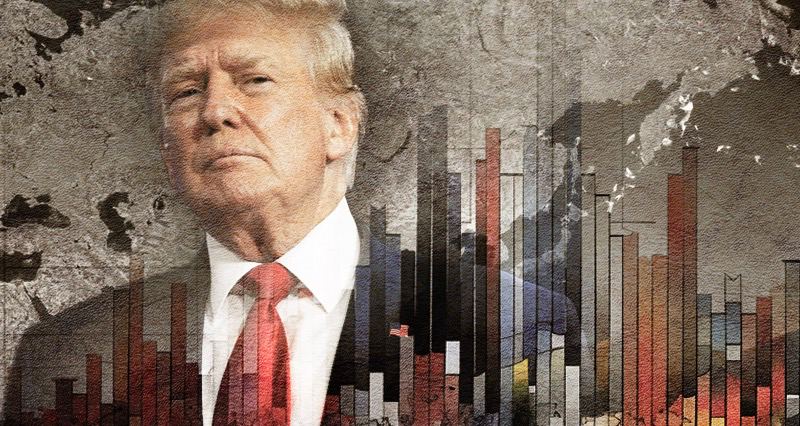By Orçun Göktürk, Beijing / China
Trump’s re-election highlights the weakening of current US hegemony, while also exposing a radical fracture in the US-led international order. Over the last two decades, US global hegemony has been seriously shaken by political, economic, and military crises and defeats. As the US begins to lose its global dominance, it will abandon the traditional rhetoric of a “rules-based international order” under Trump, adopting a more protectionist and inward-oriented strategy. This can be described as a “global contraction strategy” for the US—a shift from its previous expansionist approach to an effort focused on preserving internal resources, boosting domestic strength, and concentrating power on select geopolitical fronts.
The world’s military power has reversed
The primary driver of this transformation is the success of anti-imperialist struggles by people and developing countries worldwide. The weak have triumphed over the seemingly strong and continue to do so. Oppressed peoples have driven out US imperialism and its puppets. For instance, the Taliban and the Afghan people, once ridiculed for using mules and being allegedly drug-addicted during a 20-year occupation, defeated the 500,000 well-equipped US troops and their local collaborators, burying imperialist ambitions in the “graveyard of empires.” Yemeni Houthis, fighting with little more than sandals, have challenged imperialist navies in the Red Sea. Meanwhile, Hamas, often underestimated as a group capable only of small suicide attacks, shattered the myth of Israel’s invincibility in Western Asia. The proud African peoples, exploited for centuries, have recently started to expel French and American colonial forces from their lands, particularly in West Africa. These examples demonstrate one clear truth: US imperialist policies, particularly in places of military occupation, have ended in abject failure, with the imperialists’ military dominance fading significantly. Now, it is the world’s oppressed peoples and states fighting back, while the imperialist powers increasingly fear their resistance.
The decline of US imperialism’s military, economic, and political reach has sparked deep conflicts within the US ruling elite. Trump’s re-election stems from this ongoing struggle. The challenges in the US’s quest for global dominance have only deepened, intensifying class contradictions within the country’s ruling class, which will continue. Legal battles against Trump (the first convicted individual to be elected president), recent assassination attempts, and the rebellion of 15 state governors led by Texas earlier this year highlight the extent of these internal conflicts. These contradictions further exacerbate US weaknesses in both domestic and foreign policy.
Collapse of the US-led international order
In conclusion, the US is reluctantly abandoning its attempt to maintain a unipolar world order. This is not merely a temporary retreat to regroup economically and militarily for future dominance. Despite still possessing multifaceted power—military, political, and economic—due to its international order established since the 1950s, the US is now a declining force. Its constructed international system is crumbling. Western cultural imperialism, led by the US, no longer has the power or factual basis to sustain the myth of Western superiority. Most of the wars the US engaged in throughout the 2000s—in Afghanistan, Iraq, Libya, and Syria—ended in defeat. It lacks the influence to shape leadership in Central Asia, and its strategy to encircle China through alliances with Australia, the Philippines, and India is faltering. In Ukraine, it is stuck in a quagmire. The growing power of Russia and China only makes this picture clearer. Moreover, the trajectory suggests that “middle-power” countries like Türkiye, Indonesia, Vietnam, Brazil, Egypt, Saudi Arabia, and South Africa will increasingly align with the emerging Asian civilization, resolving their dilemmas within the old system in favor of the Asian Century.
As global peoples take significant strides to construct a multipolar international system, resistance and successes against US imperialism will only continue to grow. In this new era, the US must confront its internal struggles to maintain its global hegemony and face a narrowing space for maneuvering on the international stage. Clearly, the days of the US serving as the world’s “global policeman” are giving way to a new period where emerging states and peoples shape a multipolar future.

















Leave a Reply